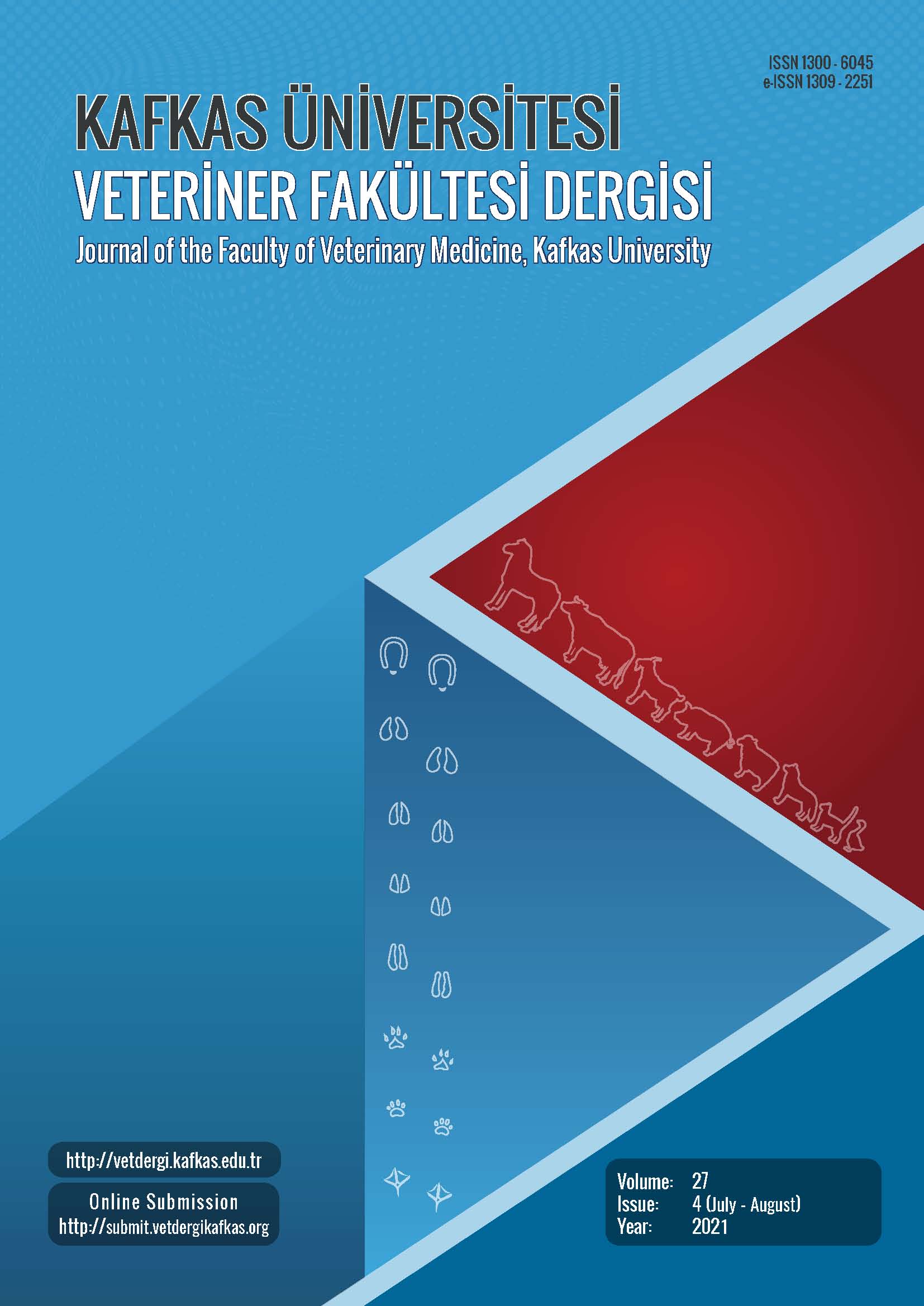
This journal is licensed under a Creative Commons Attribution-NonCommercial 4.0 International License
Kafkas Üniversitesi Veteriner Fakültesi Dergisi
2021 , Vol 27 , Issue 4
Determinate of ECG, Oxidative Stress, and Angiogenesis in APAPInduced Toxicity in Rats
1Kafkas University, Faculty of Veterinary Medicine, Department of Physiology, TR-36100 Kars - TURKEY2Kafkas University, Faculty of Medicine, Department of Medical Emergency, TR-36100 Kars - TURKEY
3Kafkas University, Faculty of Medicine, Department of Biochemistry, 36100, Kars TURKEY
4Kafkas University, Faculty of Veterinary Medicine, Department of Pathology, TR-36100 Kars - TURKEY DOI : 10.9775/kvfd.2021.25733 This study was aimed to evaluate the eff ects of N-acetyl-p-aminophenol (APAP) toxicity on the cardiovascular system as there exist relatively a few studies on this matter. The study included 14 female Wistar rats divided into two groups having 7 rats in each (control-APAP). Control group received no medication and APAP group was given single oral dose of 1g/kg APAP. ECG measurements of each animal in either group were obtained before the administration of APAP (0 h) and at the 1st, 6th, 12th and 24th h after the APAP administration. All animals were sacrificed at the end of the study. Heart tissue samples were obtained for biochemical and histopathological analyses. The levels of MDA, GSH, Apelin, Elabela, Meteorin, Endoglin, Keap1, and Nrf2 were measured in the tissue samples. Results revealed a statistically significantly prolonged QTc and QRS intervals and increased heart in the APAP group. A notable increase in MDA and Endoglin, and a significant decrease in GSH, Elabela, and Nrf2 levels occurred in the APAP group. Histopathologically, necrotic lesions were found in the APAP group. The use of high doses of APAP as an analgesic may cause permanent damage in the cardiovascular system. Keywords : N-acetyl-p-aminophenol, ECG, Apelin, Elabela, Meteorin, Endoglin











